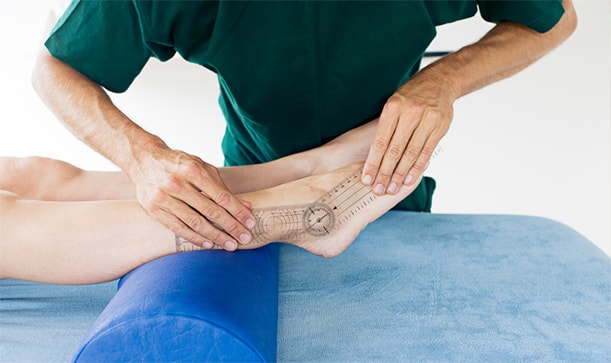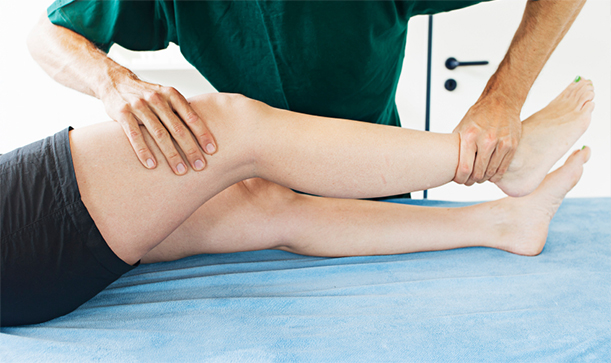CK Physiotherapy
AREAS COVERED
W7, W5, W13, Ealing, West London
57 Elthorne Avenue
Hanwell, W7 2JY
T: 020 8566 4113
M: 079 572 46185
E: info@ckphysio.co.uk
Location / Parking
We are situated in Hanwell, between Boston Manor Road and Northfields Avenue, south of the Uxbridge Road.57 Elthorne Avenue
Hanwell, W7 2JY
There are parking restrictions Mon - Fri 9-10am and 2-3pm. If you need a permit during this time please inform your therapist when you arrive. There are no parking restrictions at other times.
Opening Times
Please phone the number above during working hours to make an appointment. Our reception service will be happy to book your session.
London Underground / Bus Services
London Underground
10 min. walk from Boston Manor Tube Station.
15 min. walk from Northfields Tube Station.
Bus Service
E8, E3, E2, 207, 607, 83
Request Call Back
Our Blog
The 2022 Ahead: Physiotherapy and Mental Health
By: BryanKelly (Psst, View author in Google Plus) Date: Jan 20th, 2022Regardless of age, status, religion, or sexual orientation, it does not discriminate.
What are we talking about?
Mental health!
It’s a hard topic to broach but it affects us all and we need more mental health awareness to encourage comfortability, positivity, and effective solutions.
Mental health is a topic that physiotherapists have been discussing for a long time and using physiotherapy for mental health is not a new concept.
So, as we enter the new year ahead, we want to share physiotherapy advice to spread mental health awareness to counteract the impact the pandemic has had on mental health.
This article will explore:
• How the pandemic has affected mental health and physiotherapy services
• The connection between physical health, mental health, and physiotherapy
• How the physiotherapy sector has adapted to ensure patient needs are met
• Physiotherapy advice and exercises to spread mental health awareness
How has the pandemic affected mental health and physiotherapy?
Experiencing the fear of a pandemic, the restrictions, turmoil, and lockdowns for the first time have had an impact on us all, no matter how small.
Alongside some, unfortunately, experiencing Covid plus general health problems, mental health has been gravely affected through the pandemic.
But to what extent have we been affected?
Up and down the country it’s been tough on our wonderful NHS and medical teams.
Physiotherapists' action response to Covid-19 played a vital role in providing acute care for suffering Covid patients.
But during this time, many non-covid sufferers paid a price too.
Due to lockdown measures and resources concentrated on tackling Covid; medical services including direct physiotherapy advice and physiotherapy treatment were scaled back.
This has brought about many implications and has created a high demand in those:
• Suffering from long-term conditions
• Sustained injuries from working at home
• Elective surgery has been postponed/cancelled
• People recovering from Long Covid
The combination of the above and the pressures of the pandemic itself has led to concerns of worsening mental health across the UK.
Data presented from the Office for National Statistics in a health blog from the BBC details the effects coronavirus has had on mental health. Clearly demonstrating that more people have experienced moderate to severe symptoms of:
• Stress/anxiety
• Depression
• Fearful for their future
• Loneliness
• Grief
• Feel like a burden
• Strained relationships
Vulnerable groups include those who are injured, suffering from a long-term health condition, depend on assistance from others, live alone or have existing mental health concerns.
Many people know that physiotherapy can help with physical ailments yet might not know that it can also aid overall mental wellbeing and those who are struggling with mental health.
If you or someone you know is affected by any of the above conditions, feelings, or symptoms, please do not hesitate to contact us for physiotherapy mental health advice.
For more urgent enquiries or information on types of mental health problems, please visit organisations such as NHS or Mind.
Physical health, mental health, and physiotherapy. Is there a connection?
Generally, physical health and mental health are seen as two separate entities.
With many clinical studies echoing the strong interlink between physical and mental health. The relationship between them is bidirectional; it can be difficult to improve one without addressing both.
Traditionally, physiotherapy has placed emphasis on injury prevention, management, and rehabilitation. As well as physical therapy for medical conditions such as cardiac, neurological and orthopaedic conditions.
It’s no secret that physical activity heightens your endorphins and boosts your mood. Yet, further evidence from Physiopedia reveals that for mental health, physical activity and physiotherapy is becoming an integral part of the prevention, management and rehabilitation.
Physiotherapy has an extensive list of benefits for patients with chronic pain conditions or other medical conditions that impair mobility or limit daily activities.
Simultaneously, physiotherapy can have profound effects on the person’s well-being and emotional state, which can, in turn, influence their ability to recover from an injury or illness.
How has the physiotherapy sector adapted?
The pandemic has created an unprecedented demand for physiotherapy and the rehabilitation of acute care patients.
This order for treatment has presented many challenges for the physiotherapy sector.
Because of this, members of the wider community have experienced delays to physiotherapy services due to:
• Time constraints
• Level of care/interaction
• Health & Safety
• Risk assessment
• Staffing
A physiotherapist's position is to ensure treatment is delivered to promote, maintain, and restore health in every patient.
The lessons of the pandemic have been tough. Yet the physiotherapy sector has also seen its advantages and adapted to provide care for all who need it.
With the lack of treatment accessibility and mental health awareness of the pandemic, the physiotherapy sector had to explore new methods of delivering physiotherapy and intervention.
The way forward…. digital platforms!
For those who have access, via a computer, smartphone, or other portable devices you can receive physiotherapy services at a distance.
Virtual consultation is a way for physiotherapists to diagnose, treat and oversee a patient’s care virtually.
This method allows both physiotherapist and patient to remain safe. For you to gain access to self-help treatment and physiotherapy information. Plus, enable us to meet demand and maintain delivery expectations.
Virtual sessions or digital downloads can be used to provide:
• One-to-one sessions
• Guides and information
• Video tutorials
• Assessments
At CK Physio, we initially offer virtual consultations in the first phase of assessment before treatment.
Moving forward, as we continually battle various strains of the virus, physiotherapy treatment will be a mixture of digital and face-to-face sessions.
Benefits of virtual consultation include:
• Convenience
• Safe environment
• Comfortable surroundings
• Greater relaxation
• Faster recovery
• Better contribution and commitment
Virtual sessions are also well suited for anyone who’s experiencing mental health concerns or physical restrictions by alleviating or encouraging:
• The anxiety of travelling to new places
• Mixing in public
• Meeting face-to-face
• The pressure of keeping a physical appointment
• Increased general activity and wellbeing
• Participation in conversation
• Raised self-esteem
Physiotherapy mental health advice
A person's mental health can change depending on their physical state and vice versa.
It can be difficult to identify the root cause of mental health problems because they seem so varied, but there are some patterns that are more common than others.
If someone has depression, anxiety disorder or substance abuse issues, seeing a mental health professional for diagnosis and treatment is advised.
We need to continue educating ourselves and others about maintaining good mental health, recognising the signs of concern, and spreading awareness for any kind of progress in the future.
Below are some basic tips to help sustain good mental health:
• Do not suffer in silence - if you have a persistent low mood or are not quite yourself, make sure you contact someone for a chat or advice
• Check-in with family/friends - communication is key, even if you don’t want to physically talk send a message to check on them or let them know how you are
• Diet - a balanced diet of nutrients will help boost your wellbeing and mood
• Exercise - has a positive impact on the release of endorphins
• Relax - whether it be reading, drawing, or doing nothing, relaxation is extremely beneficial
• Sleep - essential to good mental health, aim to have a regular sleep pattern
One thing to remember is that you’re not alone.
CK Physio is here to offer physiotherapy mental health advice and treatment where necessary.
Use our online booking form today to schedule a video or phone consultation. Let us guide you on the best treatment to get you back to feeling better.





